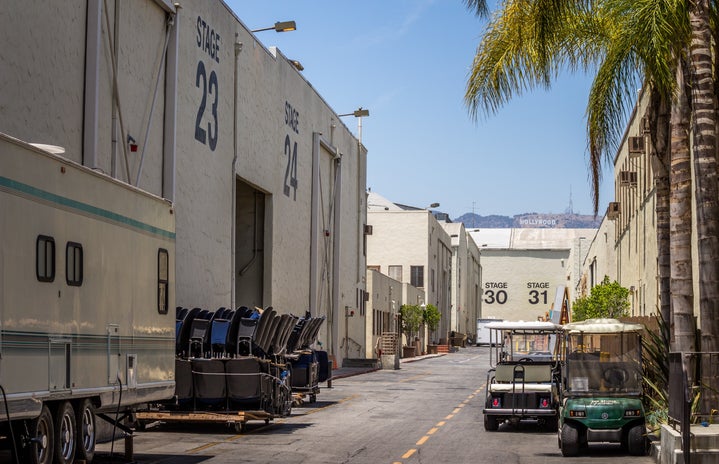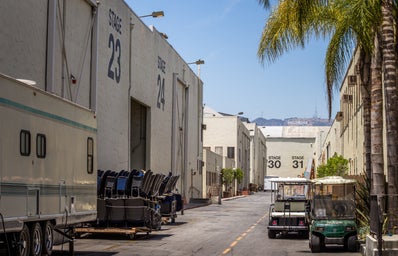Darren Aronofsky’s new film, Mother! is visual poetry. It defies definition, using seamlessly layered symbolism to show separate narratives all at once. You will take from Mother! whatever you put into it, because the characters are archetypal, the symbols familiar, the allusions biblical. Mother! uses a thread of metaphor to guide us through the unknown, lending itself to varied interpretations. This type of imagery, by design, contains several different meanings, and only through context can we understand what it “really represents”. Because cinema is experienced in real time, one does not have the advantages of revisiting previous scenes, making annotations, or glancing over footnotes as with a text. This means the context comes directly from you and what you know walking into the theater, and that’s exactly what makes this film so beautiful.
It initially seemed clear to me that this was a feminist film; not that it was “empowering” in any way, but that it payed close mind to the female perspective without ever sexualizing its lead actress. Jennifer Lawrence’s character, tasked with rebuilding her husband’s home after a fire, is a literal “home-maker”. As unexpected guests start arriving on their doorstep, her husband allows them to overstay their welcome. He never consults his wife and none of the guests do, either. It quickly becomes clear she has no authority. Her husband often speaks for her in conversations with the house guests, who eye her up and down and make lewd suggestions more than a few times. Whenever she tries taking control of the situation, telling guests to leave or rectifying the increasing amounts of damage they do to the house, she is simply told “it’s fine” and dismissed totally, as though she is confused. Her husband is kind on the surface, but is really only interested in her in relation to himself. He only sleeps with her for her potential use as a mother, a vessel for his legacy. When he finds out she is indeed pregnant, she becomes his muse, again playing the part of his useful tool in the process of creation, the implication being that others see her value as integral only to what they can get out of her.
After discussing the film with others, however, we noticed we were picking up on different things, the things we picked up on indicative of our own experiences. I’ve just started writing for a women’s magazine. Of course I followed Jennifer Lawrence’s character most closely. As with great literature, it’s the ultimate looking glass, you will see what you know. If you’re familiar with Greek myth, you’ll notice how closely the development of the husband mimics that of Orpheus, if you’re familiar with The Bible, you’ll pick up on the many allusions to the New Testament, and if you’re familiar with Laura Mulvey, you’ll pick up on how the film constantly subverts the male gaze. In a broad stroke, it is the ancient story of creation from a perspective modern enough to acknowledge the ways in which women are seen as creative tools, both literally as with procreation and figuratively as objectified muses.
That being said, the beautiful thing about ambiguity in art is not that there is one correct interpretation, but that there are countless correct interpretations. If you connected with the film and drew your own narrative, you are right. Analysis, always, is a necessarily subjective and personalized experience, and I would not be surprised to learn that there are more narratives than the three discussed here. The point is not to figure out what the film was “supposed” to do, but what it did, and what your thoughts and feelings were while watching it.
Mother! also happens to be scary as hell. The sound design is clear and crisp; our ears focus on strange and unpleasant sounds like the stirring of moist paint, breaking glass, a cake that gets slowly cut, leaving us always on edge and in the present. It is beautifully shot, paradoxically able to capture both feelings of agoraphobia and claustrophobia. The cast is wonderful, Jennifer Lawrence delivering the performance of her career, and Javier Barden, Michelle Pfeiffer and Ed Harris really falling into their roles. These elements are blended seamlessly with heavy visual symbolism to evoke a consumptive, tense atmosphere that doesn’t let up for the entirety of its run.
Mother! is the best film of the year because it is as though you and every other person in the theater are watching something completely different. If you go into the theater expecting a traditional horror film with conventional tropes, you are going to be disappointed. If you allow the movie to guide you through its surreal hell-scape, however, you may find a light on the other side. In dream analysis, a house is always a representation of the self. It is fitting that Aronofsky’s film takes place entirely inside a single house. As with psychoanalysis, as with literature, as with tarot decks and horoscopes, when we deal with archetypes we deal with ourselves, and that’s what really makes Mother! so frightening.



